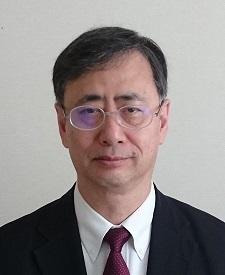
In 2000, the Graduate School of International Media and Communication was established with the research theme, "theory and practice of public consensus building." It was designed to be a graduate school for training researchers and highly-skilled professionals who were active in the fields of media and communication. In response to Japan reinventing itself as a tourism-oriented country, in 2007, the Major of Tourism Creation was added. The name of the graduate school also changed into the Graduate School of International Media, Communication, and Tourism Studies. In 2019, the two majors were integrated into the Major in International Media, Communication, and Tourism Studies to further unite the research.
Our graduate school is divided into the Course in International Media and Communication Studies and the Course in Tourism Creation Studies. The subjects within these courses focus on relocation and interaction, as well as mutual understanding and coexistence among different cultures. The Course in International Media and Communication Studies consists of "Public Communication and Journalism", "International Public Relations", "Media and Culture", and "Language and Communication." The Course in Tourism Creation Studies includes "International Tourism Development", "Culture and Tourism", "Communication and Co-creation", and "Modern Japanese Studies".
Improvement in transportation (air travel) and changes in information technology (the Internet) has enabled the relocation and interaction among people, goods, and information in both physical and virtual spaces. Emerging machine translation technology has led to a gradual breakdown in language barriers, in both face-to-face and online interaction. People will be forced into interaction though they have culturally and linguistically diverged in groups in layers.
At the same time, we are facing a global climate change disaster and the depletion of natural resources. Environmental problems such as marine plastic, desertification, acid rain, destruction of ozone layer and nuclear waste cannot be solved by a single country's efforts. In addition, the novel coronavirus, Covid-19, still continues to spread unabated. In 2015, the United Nations Summit adopted Sustainable Development Goals (SDGs). These goals include the development of global partnerships, the eradication of inequality in people and countries, the creation of towns where people can continue to live, the realization of peace and justice for all, the realization of gender equality, the access to inclusive and equitable quality education, and the harmonization of work motivation and economic growth. We cannot overcome these crises if we only focus on our own interests. We must adopt a global perspective.
In response to these crises, the OECD (Organization for Economic Co-operation and Development) has designated three key competencies as requirements for human resources in the future:
- The ability to use tools interactively (language, technology).
- The ability to interact within heterogeneous groups.
- The ability to act autonomously.
In Japan, the Ministry of Education, Culture, Sports, Science and Technology (MEXT) has adopted these key competencies in revising the new Course of Study. The ministry has also included the keywords "autonomous, interactive, and deep learning" in the Course of Study.
As mentioned above, the denizens of the world are now faced with overcoming their own interest and working together to solve unprecedented global problems. Now the research on the theory and practice of public consensus building is crucial for us to mutually understand and coexist among different cultures in the age of migration and interaction. Since its establishment, our graduate school has emphasized practical education, which features the implementation of project seminars and collaborative courses taught by outside expert professionals. We hope that the research undertaken by the Hokkaido University Graduate School of International Media, Communication, and Tourism Studies will contribute to welfare of the entire world.
April 1, 2021
Kawai Yasushi

